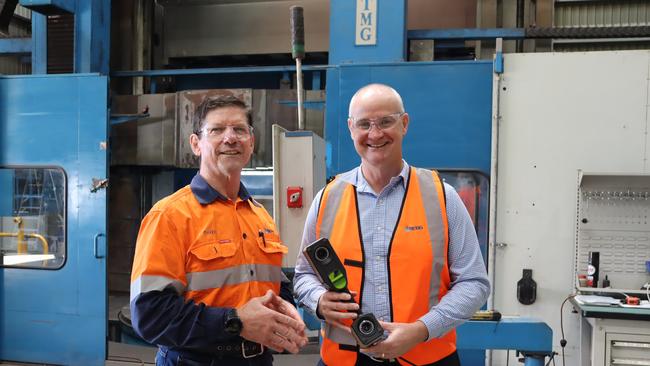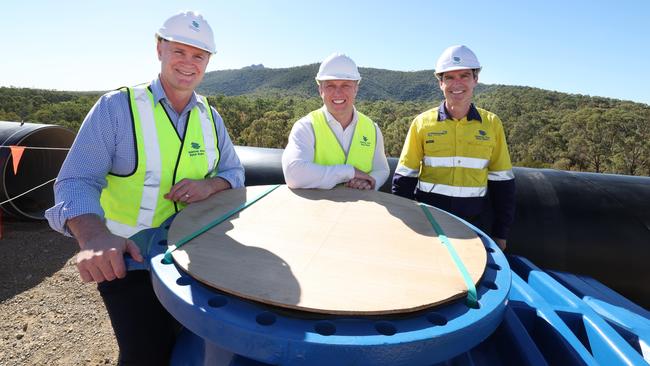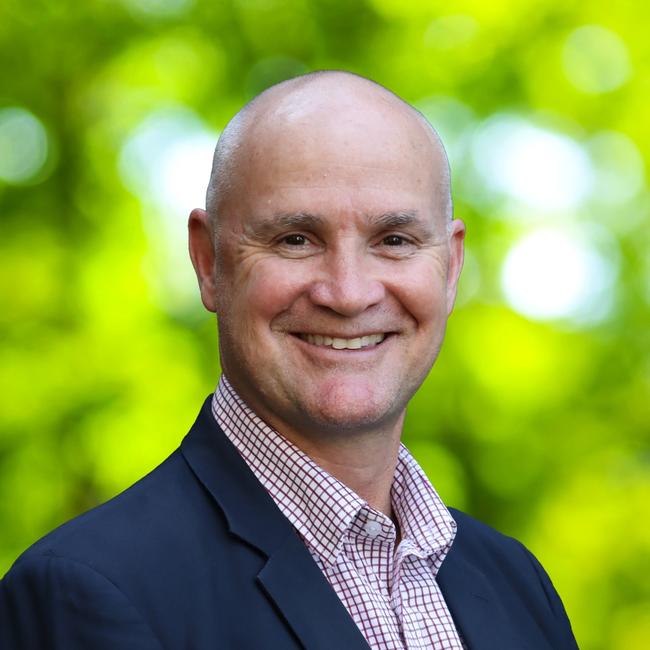Big Gladstone vote swing against Butcher a ‘fair whack’ but not a wake up call
Gladstone MP Glenn Butcher describes the 18.8 per cent swing against him in the state election result as a “fair whack” but one he had expected.

Gladstone
Don't miss out on the headlines from Gladstone. Followed categories will be added to My News.
Gladstone MP Glenn Butcher describes the 18.8 per cent swing against him in the state election result as a “fair whack” but one he had expected.
Mr Butcher, who still retained the seat from the LNP’s challenger Steve Askew by a comfortable 9.3 per cent margin after preferences said there were a number of factors behind the voter shift.
He also rejected suggestions the result was “a wake up call”.
“It’s not (a wake up call), I’ve been a very active member here,” he said.
“Gladstone is a traditional Labor town and the vote was always going to come back from the large margin in 2020 (23.5 per cent) off the back of a positive Covid response we had here. ”
A lot of people were really happy in the last election with our decisions and what we did with Covid and that’s why the margin was so big (in 2020).
“Seven candidates running (in 2024 after five ran in 2020) doesn’t help either because they spread the vote distribution around.
“So the swing was on but it’s still a reasonably safe seat.”
Mr Butcher said he would quickly adjust to being in Opposition for the first time in his career after winning the seat in 2015.
He said there was so much work to do particularly in the health services area to support the fast growing Gladstone population.
These included moving the maternity services and pediatrics to the West Wing of the Gladstone Hospital (with new its theatres) and working on a hospital master plan.

“I’ll be holding them (the LNP Government) to account,” he said.
“You can’t make all these big comments on health needing to be better and not do anything on Gladstone because it’s not a liberal seat.”
He said another major focus was to ensure the government continued to support the growth of major industry in the region, particularly with the surge of renewable and hydrogen projects.
He said the hydrogen projects were the type of long term development that the region needed to “break the boom and bust cycle”.
“We’re sick of that here,” he said.
“All of the stuff we’re doing here in renewables and the hydrogen coming forward and now we have the Fitzroy to Gladstone pipeline happening (75 per cent complete) for water security.”
The $1 billion 117km pipeline is fully funded the next stage of the project is to connect it to the state development area to support business and industry.
“We call it the bullhorn and we need to make sure that happens because without water these industries will have to taper back if we get into severe drought and there is no extra water supply. So it’s critical we get that finished.
“He said there was even talk about a study for a desalination plant to provide more backup water support.
Another concern for Mr Butcher is the need for planning to support renewable growth.

He does not think the LNP had a feasible energy storage plan.
“We can’t keep building wind farms and solar farms and have no large scale storage,” he said.
He said a major win for the region had been the Labor Government’s partnership with Rio Tinto to secure long-term operation of the Boyne Island aluminium smelter near Gladstone by using the state’s renewable energy to protect approximately 1,000 local jobs.
“We want to keep charging ahead and keep the industries supporting the Boyne Smelter, keeping these jobs until 2040,” he said.
The government is providing a support package, accessible by Rio Tinto from 2029, to ensure the smelter’s economic competitiveness as it shifts to cleaner and renewable energy sources.
Under the agreement, Rio Tinto will be required to operate the smelter at full capacity until the end of 2040, commit to ongoing maintenance capital expenditure and meet employment requirements.
“I’m going to to follow through with supporting Rio Tinto with their charge towards renewables to make their business more sustainable,” he said.
“That’s a big concern for Gladstone.
“I’ll keep working hard to win the vote back and make Gladstone a better place in four years’ time.”




